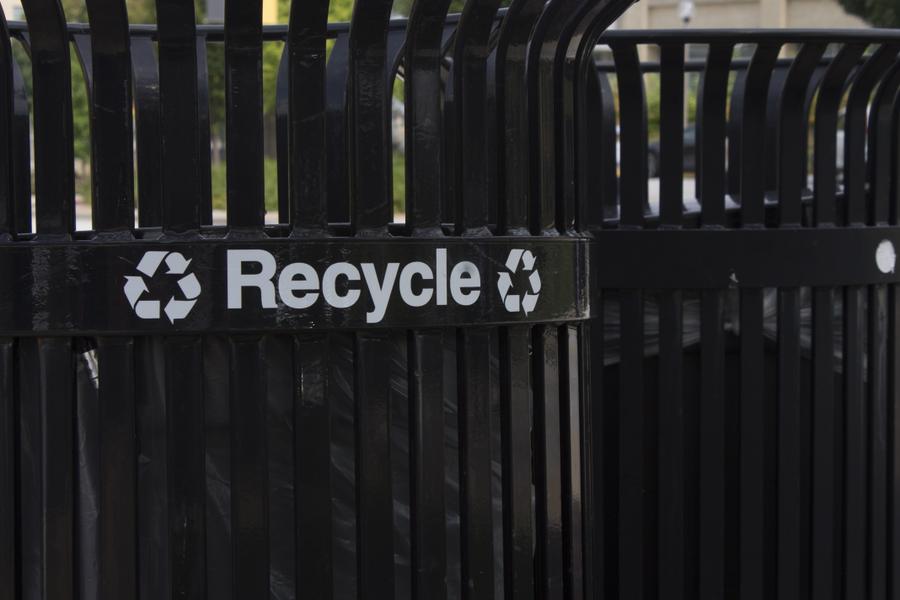**Question: Does ResLife actually recycle?**
Water bottles can really pile up on campus during the end of Missouri’s scorching summer. Hopefully we’ve all been recycling them in various locations around campus, whether in your classroom, the Student Center or a residence hall. Recycling bins are usually located right next to trash cans in these locations, and from there, the City of Columbia picks it up.
Residence halls have specific areas on each floor for students to take their own recycling, and Residential Life staff move the recycling to the curb for the city to pick up. MU Facility Operations takes the recycling from the campus buildings’ recycling bins to the curb for the city to pick up as well.
Assistant Director of Facility Operations Matt Maher said the recycling dumpster units, the university’s cardboard dumpsters and tan carts for bottles and cans are emptied by the city on Tuesdays. Green fiber carts are set out on the curb for pickup on Wednesdays, and the recycling bins that are on sidewalks are emptied and set to the curb as often as necessary. The City of Columbia even has two commingled recycling bins, a bin that can have a mixture of plastic, tin and aluminum, behind Schurz Hall for the citizens of Columbia to put their own recycling into for the city to easily obtain.
Once the city picks up the recycling, it is taken to the Material Recovery Facility, where all of it is “sorted, baled and shipped to a processing facility,” Columbia’s waste minimization coordinator Ben Kreitner said. The facility is located in, owned and operated by the city. Kreitner said MU has been working with the city’s office of sustainability for nearly two years. The city’s office also collaborates with MU’s sustainability office. Maher said MU has been recycling on campus now “since 2001, at least.”
MU’s efforts to reduce, reuse and recycle are definitely increasing. Out of all the trash the university produces, 28 percent of it has been recycled, and the national rate is 34 percent. Communications Manager for MU Operations Karlan Seville said that the Environmental Health and Safety Department at Mizzou operates a chemical redistribution program as part of the overall MU program that gets rid of hazardous materials.
This program helps share the excess chemicals departments may buy with other departments, so money and landfill space can be saved. She also said if any MU employees have any extra furniture or equipment they no longer want or use, they can contact Surplus Property on campus and it will be sold to another department. Surplus Property will hold monthly live auctions to sell these unwanted items. This way, these items can get a little more use out of them.
_The Verdict:_ ResLife and the rest of campus recycles with help from the City of Columbia.
_Edited by Katie Rosso | [email protected]_








